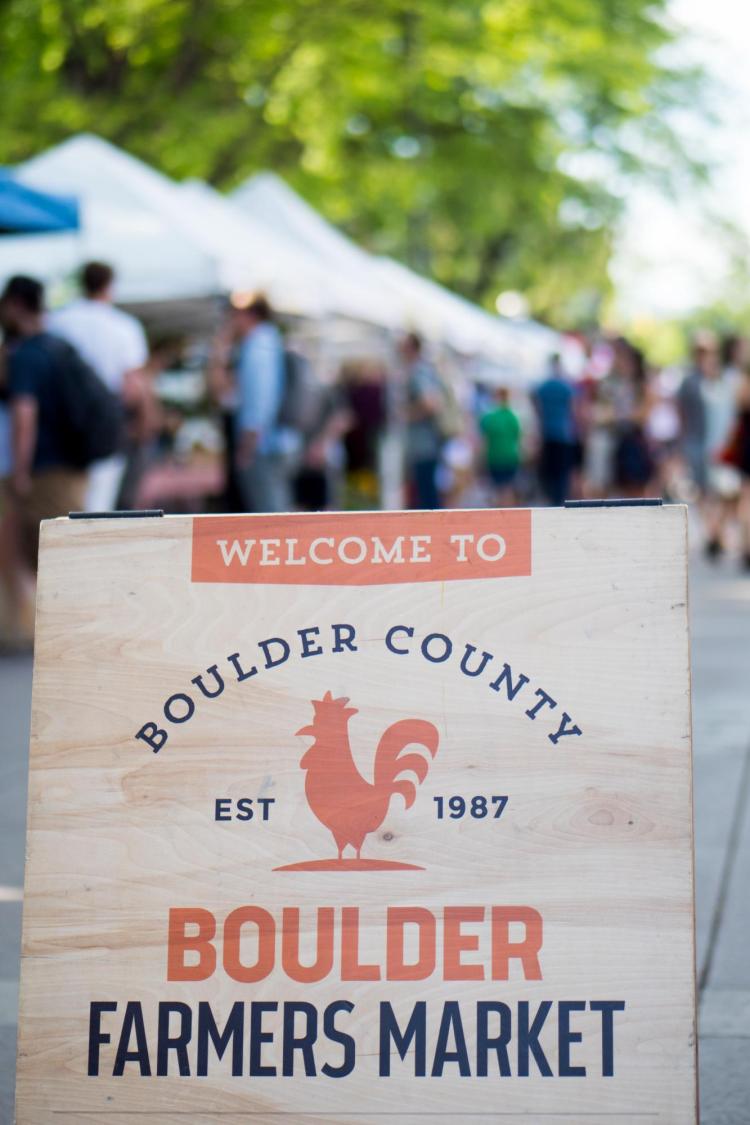5 easy ways to eat local
Why should you eat locally grown food? One look at the face of someone who has just sunk her teeth into an amazingly juicy and flavorful Colorado peach will tell you the reason: It is scrumptious.
Plus, local food is often more nutritious than its well-traveled alternative. And Paying your farmer directly keeps your money in your community, while less packaging and traveling mean less environmental impact per bite.
So how can you sink your teeth into some in-season local eats on campus and in the Boulder County Foodshed?
Grab local grub on campus

A greenhouse at the Village Center Dining in Williams Village that will supply all the leafy greens for that location is currently under construction and will be fully operational around November.
For what they can’t grow, local ingredients from farms and businesses throughout Colorado are incorporated into menus across campus and will be featured in different menus throughout the semester.
Follow @CUBoulderLiving on social media to get fresh menu updates, and learn more about Housing & Dining Services' sourcing standards for food served on campus.
Head to the farmers market

Plan to bring cash or purchase "market bucks" on site with your debit, credit or Flatirons card to use at the booths, as most vendors don’t take cards.
The Boulder markets are held at 13th Street between Canyon Boulevard and Arapahoe Avenue. The Saturday Market is open 8 a.m. to 2 p.m. through Nov. 18, and the Wednesday Market is open 4 to 8 p.m. through Oct. 4.
Boulder County Farmers Market also visits Longmont and Denver's Union Station on Saturdays, as well as Lafayette on Thursdays.
Grow your own
Without much time, or even a yard, you can still grow most leafy green things at home.
- Growing potted fresh herbs such as basil, oregano, rosemary, mint, marjoram and many others is an easy way to add a lot of flavor to inexpensive meals.
- Spinach, arugula, chard, bok choy and other delicate greens can grow well potted inside or in a small yard garden.
- Sprouting in trays or jars in your kitchen is an excellent and inexpensive way to add fresh vegetables to your diet. Google "sprouting trays" for tips.
- Follow CU in the Garden on Facebook for opportunities to be a part of growing food on campus.
- And if you are ready to get your hands really dirty, check out local community gardens.
Find it in the grocery store
Most grocery stores in Boulder make a point to source more, and visibly label, foods grown or produced locally. Take the time to make sure you're choosing local foods when they're available to you.
Farm-to-table dining
Boulder has an abundance of restaurants, cafes, bars, distilleries and breweries using regional ingredients to create delectable dishes. Dig into all the options.


